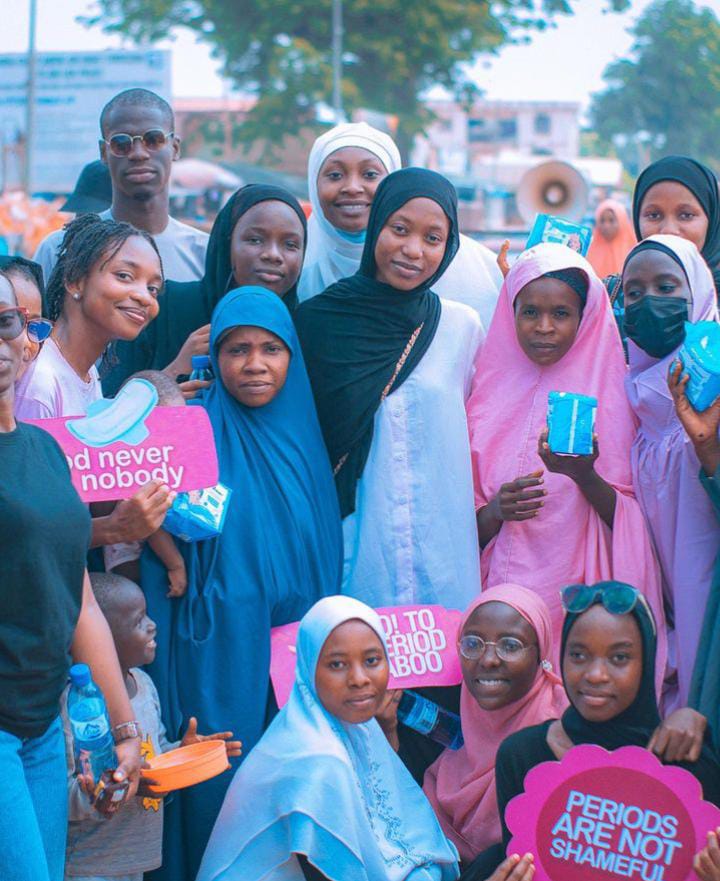For many Nigerians, feminism conjures up distorted images of man-hating, bitter spinsters. But in the vibrant online spaces of Twitter, a new narrative is blossoming. Young feminists are carving out safe havens for women’s voices, challenging misogyny, and empowering their communities. Among them stand three organizations – Sirenco, Herbode, and Padherwithlove – affectionately known as the “feminist triplets.”
Sirenco, founded by Adeyinka Atilola, a writer and digital marketer, emerged from the need for a virtual sanctuary during the 2020 lockdown. It quickly transcended its online roots, morphing into a helpline offering medical advice, legal aid, and a supportive community for women. Herbode, spearheaded by Aboluwade Isabella, a nurse, champions a similar mission, aiming to build a physical and online “abode” for survivors of abuse and violence. Shamsiya Ibrahim Yusuf, the founder of Padherwithlove, tackles a crucial yet stigmatized issue – period poverty. Operating from Northern Nigeria, her organization distributes sanitary pads and educates girls and women about menstrual health.
The impact of these organizations is undeniable. Sirenco boasts a thriving mentorship program for girls, spearheads legal cases for women, and offers medical support. Herbode’s “Educate a Girl Child” project sponsors underprivileged girls’ education, while Padherwithlove has spearheaded outreach programs tackling period stigma and providing essential sanitary products. Their online visibility is steadily rising, attracting individuals seeking support and amplifying their reach beyond the virtual sphere.
Despite their triumphs, the triplets face formidable hurdles. Maintaining online safety from male infiltrators and information leaks is a constant battle. Funding limitations hamper their ability to expand services and reach more women. Siya, working in the conservative north, confronts unique challenges around donor motives and potential backlash. Yet, their resilience is unwavering. They draw strength from their unwavering commitment to women’s rights and the unwavering support of their online communities. As Atilola said, “Seeing the impact… the smiles we bring, that’s what keeps us going.”
Looking ahead, the triplets harbor ambitious dreams. Herbode envisions a physical shelter for abuse survivors, offering comprehensive rehabilitation. Sirenco aspires to expand its legal advocacy, tackling gender-based violence and fighting for women’s rights. Padherwithlove dreams of becoming a pan-African force combating period poverty and stigma. But their aspirations extend beyond individual goals. They plan a joint outreach campaign, leveraging their combined strengths to raise awareness about period poverty and distribute sanitary pads across major Nigerian cities.
The story of the feminist triplets is not merely an organizational narrative. It’s a microcosm of the evolving Nigerian feminist movement, showcasing its diversity, dynamism, and unwavering commitment to women’s rights. It’s a testament to the transformative power of sisterhood and activism, a beacon of hope amidst a landscape marked by gender inequality.
In Nigeria, young feminists are reshaping the narrative around feminism through vibrant online spaces, with three key organizations – Sirenco, Herbode, and Padherwithlove – leading the charge. These groups, known as the "feminist triplets," provide essential support and empowerment to women.
Founded by Adeyinka Atilola, Sirenco began as a virtual sanctuary during the 2020 lockdown and now offers medical advice, legal support, and a robust mentorship program. Herbode, led by Nurse Aboluwade Isabella, creates safe spaces for abuse survivors and focuses on education for underprivileged girls. Padherwithlove, established by Shamsiya Ibrahim Yusuf, addresses period poverty by distributing sanitary pads and educating women on menstrual health.
Despite facing challenges like online safety, funding limitations, and social backlash, these organizations have made significant impacts. They champion legal cases, sponsor education, and combat period stigma. They also have ambitious plans, such as building physical shelters, expanding advocacy efforts, and conducting joint outreach campaigns. Their work reflects the broader dynamics of Nigeria's feminist movement, highlighting the transformative power of sisterhood and activism.






